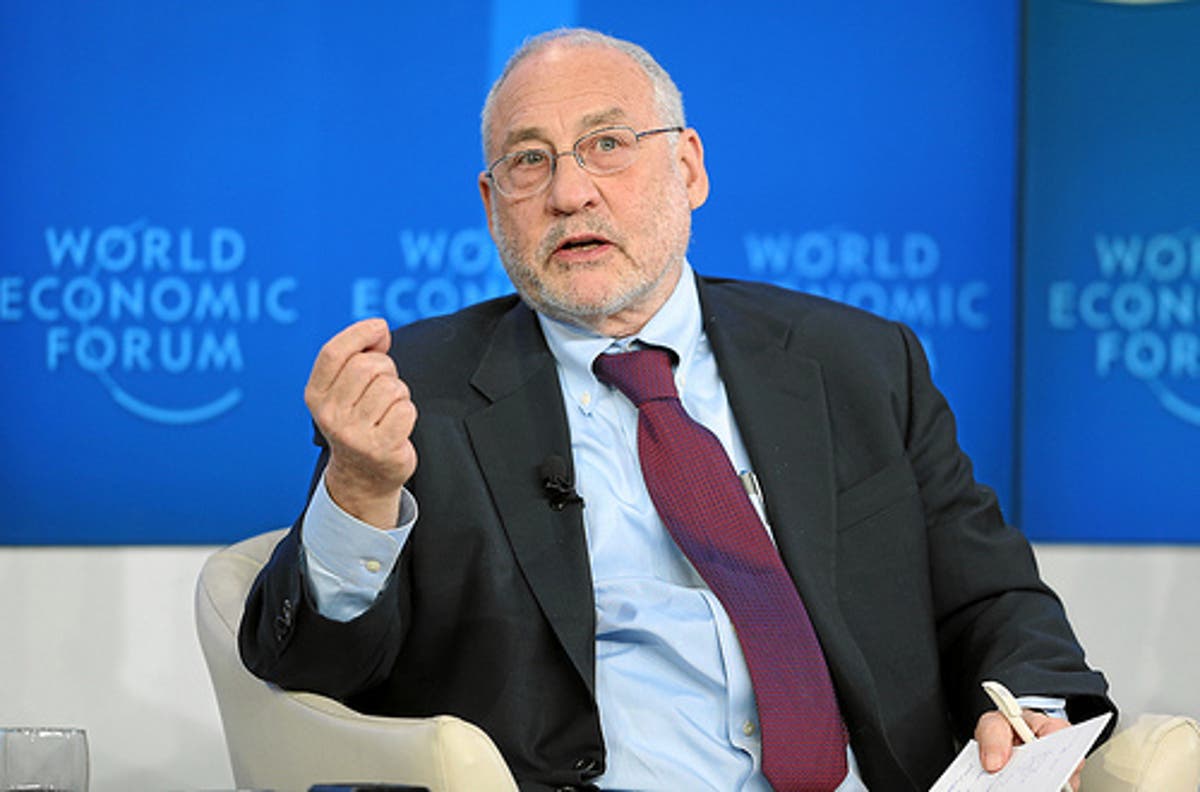An American economist with some experience, Joseph Stiglitz has been around the block a few times. He was the head of the Council of Economic Advisers under the Clinton administration and won the Nobel Memorial Prize in Economic Sciences in 2001. He served as the World Bank’s chief economist and senior vice president. He currently teaches economics at Columbia University. He has written numerous works, notably Globalization And Its Discontents .
Doctors, lawyers, accountants, and other professionals are similar to economists in many ways. If you ask a question of five of them in a room, you will get eight distinct responses. You may or may not agree with Joseph Stiglitz’s rants about the flaws of the neoliberal policies that have dominated global economic policies for many years, but he has the right to his opinion and ought to be heard with respect.
There has been a lot of discussion and writing online and in the press this week as the Inflation Reduction Act stumbles toward completion in Congress. Some are concerned that it provides excessive support to industries related to fossil fuels, auto dealers, or other interest groups who rarely need assistance from the government. Others go on the attack against any policy that don’t help the wealthy. What Stiglitz has to say about the subject should matter to you regardless of your worldview.
Here is the complete, unedited content of his statements since it is simply impossible to summarize something at this particular moment. The doors to history open and close on small hinges, as my high school history teacher loved to remark. One of those little hinges might be the Inflation Reduction Act.
WHAT MAKES THE INFLATION REDUCTION ACT SO IMPORTANT The US Inflation Reduction Act would be a significant piece of legislation if it were to succeed. It will not only reduce inflation but also strengthen America’s long-term competitiveness with provisions to speed up the country’s transition to sustainable energy, manage health care costs, and simplify the tax code.
The Inflation Reduction Act (IRA) of 2022, a compromise bill sponsored by US Senate Democrats, addresses several significant, long-standing issues that affect our economy and society in addition to inflation.
The reasons for today’s inflation are the subject of a heated discussion, but whichever side one chooses, this bill is a step in the right direction. There is a deficit reduction of more than $300 billion for those concerned about excessive demand. The bill would also mobilize $369 billion in investments in energy security and decarbonization on the supply side. That will help put America back on schedule to decrease its carbon dioxide emissions by about 40% (from 2005 levels) by 2030 and bring down the cost of energy, which is one of the key factors driving current price growth.
The returns on these investments will be substantial. In comparison to today’s inflation, the costs of climate-driven disasters (such as wildfires, hurricanes, tornadoes, and floods) will diminish our quality of living. Lower-income households, persons of color, and future generations will bear these costs disproportionately. When compared to the costs of deficits, these expenses are more higher and more difficult to address.
Additionally, increasing energy security has become crucial. Authoritarian rulers of petro-states have had much too long to control the rest of the world. Vladimir Putin, the president of Russia, has reminded us once more that there are significant hazards associated with energy interdependence (something I warned about more than 15 years ago). While the weather may change, fossil fuel dictators are unpredictable and extremely hazardous.
By cutting Affordable Care Act (Obamacare) premiums for millions of Americans and capping out-of-pocket medication expenses for Medicare beneficiaries, the IRA would also help address the growing health care costs that have long plagued America. Simply because the government is banned from negotiating for cheaper prices, the pharmaceutical industry has gotten tens of billions more from Medicare payouts than it otherwise would. The sector will finally get its gift back, saving close to $300 billion over ten years.
One of the top countries in the world for pharmaceutical innovation, American taxpayers funded a large portion of the fundamental research that led to these advancements. However, Americans pay significantly more for prescription pharmaceuticals than consumers in other nations, in part due to the fact that drug firms have unrestricted discretion to determine pricing. Many of us have been trying to limit these companies’ excessive market dominance for years. This provision alone would be a significant accomplishment if the IRA is passed into law.
The bill would also bring about desperately needed changes to US tax law. The richest households and corporations do not pay their fair share of taxes. That is both economically unproductive and undermines faith in our democracy. To finance necessary public spending without leading to inflationary deficits, tax revenues are required.
Russia’s invasion of Ukraine has served as a reminder of the need for defense spending. But we also need to make significant investments in infrastructure, technology, research, and education if we want to keep America competitive. A minimum corporate tax of 15%, stricter tax enforcement, and the imposition of a 1% excise tax on stock buybacks are among the elements in this bill that would raise more than $450 billion (over a ten-year period).
Particularly significant is the minimum corporate tax rate of 15%. The US has taken the lead in an international negotiation to stop the practice of some governments cutting special deals for corporations in order to siphon off tax revenues and jobs from other nations and compete in a race to the bottom in terms of tax rates, a race in which the only winners are the multinational corporations. In addition to generating much-needed funds, a minimum corporate tax of 15% in the US will also contribute to the end of this world race. For the US, this is particularly significant since it protects American workers from unfair competition.
However, the historic global accord that America built is unlikely to advance if America does not uphold its requirements. We need international cooperation on a wide range of issues, including the battle for democracy in Ukraine and concerns like food shortages and climate change. The US minimal corporation tax is a crucial step in demonstrating that we can be good global citizens, much like the climate policies.
Naturally, some conservative critics (many of whom are associated with pharma firms, other large corporations, and the rich) will assert that the IRA would cause inflation and even present models to support their claims. But we are now aware that inaccurate models provide inaccurate predictions. Look no farther than the arguments put forth in favor of Ronald Reagan’s tax cuts for the wealthy (which they falsely claimed would result in an increase in revenues) or Donald Trump’s tax cuts for corporations (which they falsely claimed would spur additional investment).
These predicted objections to the IRA tax provisions are predicated on a false premise, namely that businesses will shift the minimal tax burden by increasing prices and decreasing salaries. However, economists have long understood that the existing corporate tax system in the US, which permits businesses to write off almost all costs, including labor and capital, is very similar to a pure gains tax. Furthermore, it has long been assumed in economics that a pure profits tax has little impact on either prices or wages.
This suggests that raising these taxes is possible without worrying about how it would affect inflation or investment. The IRA at least makes headway on the first of these fronts, which is where the major distortions and glaring injustices in the tax system originate from.
Some of the IRA’s anti-inflationary impacts might be seen almost immediately, particularly in the instance of the medicine price provision. However, the full benefits of the IRA will only be realized gradually over the next years, especially as we invest in the green transition. Markets are forward-looking (even if they’re not great at it), thus the expectation of growing renewable energy supply ought to result in lower fossil fuel pricing right now. Furthermore, some of the more popular theories contend that current inflation is significantly influenced by expectations of future inflation; hence, even the elements of the bill that slow inflation down could have anti-inflationary effects now.
No law is flawless. Compromises with special interests will always occur in the money-driven politics of America. The original Build Back Better measure, which would have done more to support equitable growth and combat inflation, was superior to the IRA in both effectiveness and efficiency. We cannot, however, allow perfection to be the adversary of goodness. In the end, the IRA is a critical move in the right path.
THE CONCLUSION Although Joseph Stiglitz has presented his arguments in favor of the Inflation Reduction Act, some of you may disagree with him. CleanTechnica has a comment area as a result. Please feel free to discuss your ideas with us and other people.
Do you value the unique reporting and cleantech news coverage on CleanTechnica? Consider becoming a patron on Patreon or a CleanTechnica Member, Supporter, Technician, or Ambassador. Don’t miss a cleantech story, will ya? Register for daily news updates from CleanTechnica by email. Or follow us on Google News Want to advertise with CleanTechnica, send us a tip, or propose a speaker for our podcast CleanTech Talk? You can reach us here.







